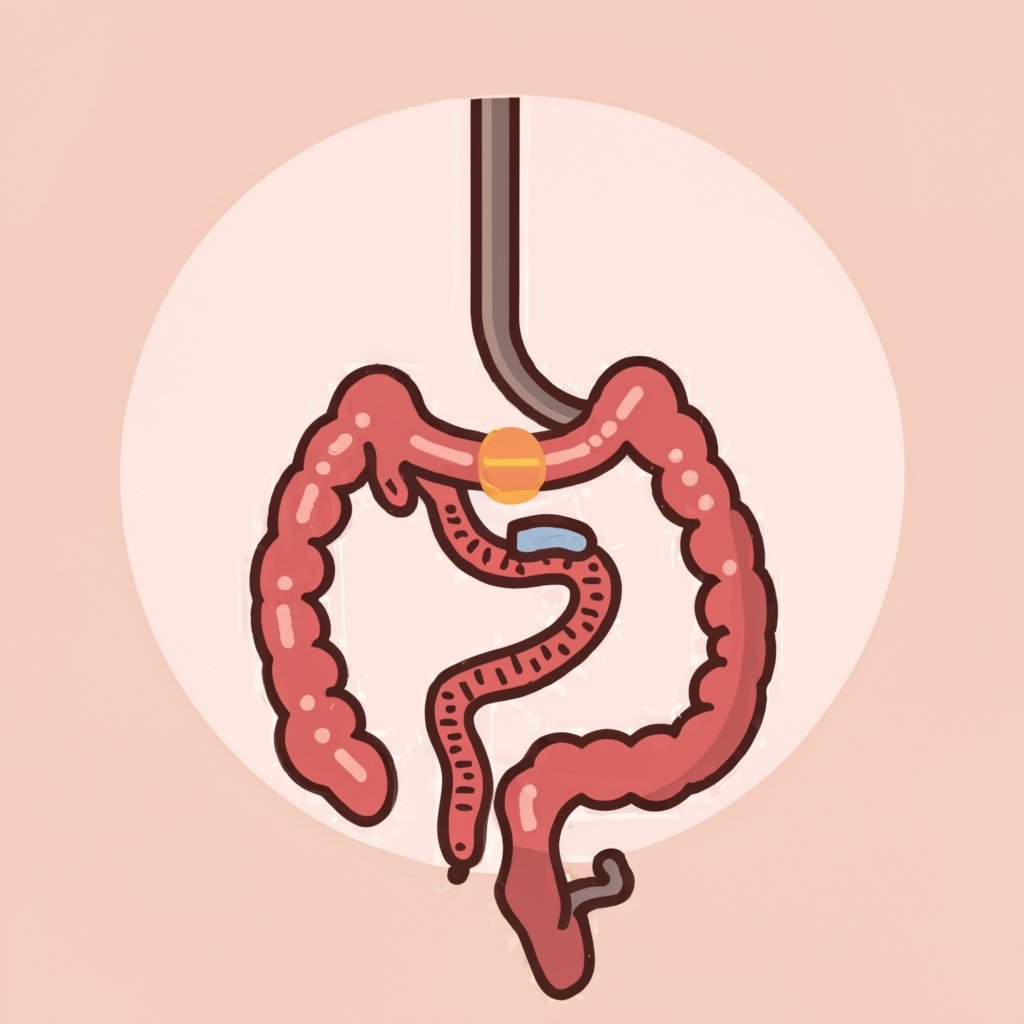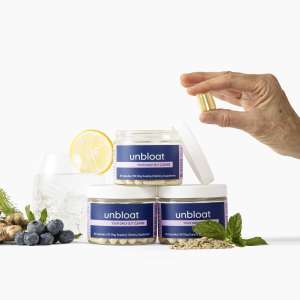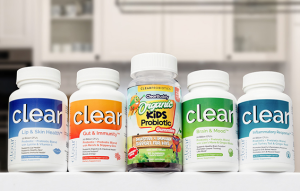Table of Contents
ToggleIntroduction
Addressing the concern of whether probiotics cause constipation uncovers a complex aspect of gut health management.
Probiotics, widely recognized for their health benefits, can, in some cases, lead to discomforting side effects such as constipation, bloating, and gas.
This comprehensive discussion focuses on identifying these potential side effects, offering strategies for effective management, and understanding the broader context of probiotic use, including lifestyle influences and alternative options.
Key Takeaways
- Probiotics can potentially cause constipation in some individuals.
- Constipation is a rare side effect of probiotics, but it is important to be aware of the possibility.
- Other factors such as lifestyle, diet, and underlying conditions should also be considered when experiencing constipation.
- If constipation persists or worsens, it is recommended to stop taking the probiotic and consult a healthcare professional.
- Probiotic-rich foods can be an alternative option for improving gut health, and reducing the risk of constipation.

Common Side Effects of Probiotics
These side effects may include bloating, gas, and constipation, with temporary increases in gas and bloating being the most commonly reported.
Some individuals who take yeast-based probiotics may experience constipation as a side effect.
While these side effects are typically temporary and subside after a few weeks of continued use, it’s important to listen to your body and consult a healthcare professional if the side effects persist or become severe.
They can provide guidance on whether you should continue taking the probiotic or explore alternative options.
Remember, everyone’s body reacts differently to probiotics, so it’s important to prioritize your well-being and take appropriate actions based on your own experience.

Probiotics and Histamine Levels
Certain probiotic supplement bacterial strains can produce histamine in the digestive tract.
Individuals with histamine intolerance may experience symptoms similar to an allergic reaction from this, including itching, watery eyes, runny nose, or difficulty breathing.
Individuals with histamine intolerance need to be cautious and avoid probiotics containing histamine-producing bacteria.
Examples of such bacteria include Lactobacillus buchneri and Streptococcus thermophilus.
For those with histamine intolerance, understanding the histamine levels in probiotic strains is crucial as it enables them to make informed choices about their probiotic consumption.
Avoiding histamine-producing strains helps minimize the risk of allergic-like symptoms.
Potential Adverse Reactions to Probiotic Ingredients
When using probiotic supplements, you should be aware of potential adverse reactions.
People often have allergies or intolerances to certain probiotic ingredients. It’s crucial to read product labels carefully to ensure they don’t contain allergens that could trigger reactions.
Dairy, egg, soy, and yeast are common allergens found in probiotics.
If you have allergies to these ingredients, avoid probiotic supplements containing them to reduce the risk of adverse reactions.
Also, consider the presence of prebiotic fibers in some probiotic supplements.
While prebiotics benefit gut health, they can cause gas and bloating in some individuals. If you have experienced these side effects, choosing a probiotic supplement without prebiotics might be wise.
Evaluating Lifestyle Factors That Contribute to Constipation
Before jumping to conclusions and assuming that probiotics are the sole cause of constipation, it’s imperative to evaluate other lifestyle factors that can contribute to this condition.
Insufficient fiber intake:
Not eating enough fiber can lead to constipation. Fiber increases stool bulk and promotes regular bowel movements. Including a variety of fiber-rich foods such as fruits, vegetables, and whole grains in your diet can help prevent constipation and maintain digestive health.
Changes in routine:
Changing your daily routine, such as traveling or reducing physical activity, can disrupt bowel movements and lead to constipation. Maintaining a consistent exercise routine and trying to stick to regular meal and bathroom times can help mitigate these effects.
Medication changes or new medications:
Some medications, particularly those affecting the digestive system, can cause constipation as a side effect. If you start a new medication and notice changes in your bowel habits, discuss this with your healthcare provider to find possible alternatives or solutions.
Dehydration:
Not staying adequately hydrated can result in dry and hard stools, which are difficult to pass. Drinking plenty of fluids, especially water, and limiting diuretics like caffeine and alcohol can improve stool consistency.
Increased stress levels:
Stress significantly affects your digestive system, potentially slowing bowel movements and causing constipation. Techniques like mindfulness, yoga, and regular physical activity can be effective in reducing stress and improving gut motility.
Irritable Bowel Syndrome (IBS):
If you suffer from IBS or similar conditions, constipation might frequently occur. Working with a healthcare provider to manage these conditions through diet, lifestyle changes, and possibly medication can help alleviate constipation.
It’s crucial to assess these lifestyle factors alongside your probiotic use to determine the potential cause of constipation. By considering the bigger picture, you can better identify and address the underlying factors contributing to your symptoms.
Possible Mechanisms of Probiotic-Related Constipation
Scientists do not fully understand how probiotics cause constipation, but one theory suggests that probiotics might disrupt the bacterial balance in the gut microbiome, leading to constipation.
Different bacterial strains in probiotics have varying effects on gut motility.
For instance, strains like Saccharomyces boulardii could slow digestion and contribute to constipation, whereas Lactobacillus plantarum and Bifidobacterium longum might help alleviate it.
This potential disruption in the gut bacteria balance by probiotics can affect stool movement in the intestines, resulting in slower and more difficult bowel movements.
The way individuals react to probiotics can vary, influenced by factors such as the specific bacterial strains used, the person’s unique gut microbiome, and their overall digestive health.
Understanding how probiotics cause constipation requires more research. Meanwhile, it’s important to consider individual reactions and select probiotic strains that cater to the specific digestive needs and concerns of each person.
Strategies to Manage Probiotic-Related Constipation
If you suspect constipation is related to your probiotic use, don’t worry! There are effective strategies to manage and alleviate this discomfort. Follow these recommendations to find relief:
- Start with a low dose: Begin by taking a small amount of probiotics and gradually increase the dosage over a few weeks. This allows your body to adjust to the beneficial bacteria, minimizing the chances of experiencing constipation or other side effects.
- Consult a healthcare professional: If constipation persists or becomes severe, it is recommended to stop taking the probiotic and seek guidance from a healthcare professional. They can assess your situation and provide personalized advice to address your specific needs.
- Consider different probiotic brands: Not all probiotics are created equal. If one brand is causing constipation, try switching to another brand that contains different strains or formulation. Consulting with a healthcare professional or reading reviews can help you choose a brand better suited to your needs.
- Opt for constipation-relieving strains: Some probiotic strains have shown effectiveness in managing constipation. Consider probiotics containing Lactobacillus plantarum and Bifidobacterium longum, as they have been associated with improved bowel movements and alleviation of constipation.
Incorporating these strategies can help you manage probiotic-related constipation and ensure a more comfortable gut health journey.
Tips for Relieving Constipation
In addition to managing probiotic-related constipation, there are general tips that can help relieve constipation. Incorporating these strategies into your daily routine can promote regular bowel movements and overall digestive health.
1. Stay Hydrated
Drinking an adequate amount of water throughout the day is essential for maintaining healthy bowel movements. Aim to drink at least eight glasses (64 ounces) of water daily. Adequate hydration helps soften the stool, making it easier to pass.
2. Increase Fiber Intake Gradually
Fiber plays a crucial role in promoting regular bowel movements. Gradually increase your fiber intake by incorporating foods such as fruits, vegetables, whole grains, and legumes into your diet. Aim for at least 25 grams of fiber per day for women and 38 grams for men.
3. Engage in Regular Physical Activity
Regular exercise helps stimulate bowel movements by increasing muscle contractions in the intestines. Aim for at least 30 minutes of moderate-intensity exercise, such as brisk walking or cycling, most days of the week.
4. Listen to Your Body’s Urge to Go
When you feel the urge to have a bowel movement, make sure to respond promptly. Ignoring the urge can lead to the stool becoming harder and drier, making it more difficult to pass.
Exploring Alternative Options to Probiotic Supplements
If probiotic supplements are causing persistent constipation or other adverse effects, you may be wondering if there are alternative options to improve your gut health.
Fortunately, there are alternative ways to introduce beneficial bacteria into your body without relying solely on supplements.
One option is to incorporate probiotic-rich foods into your diet. These foods naturally contain live cultures of bacteria and can provide similar benefits to probiotic supplements. Some examples of probiotic-rich foods include:
- Yogurt
- Kefir
- Sauerkraut
- Kimchi
- Kombucha
Another option is to explore fermented foods.
Fermented foods, such as tempeh, miso, and pickles, also contain beneficial bacteria that can support a healthy gut.
These foods can add variety to your meals and provide additional nutrients along with the probiotic benefits.
Remember, when incorporating probiotic-rich foods or fermented foods into your diet, it’s important to listen to your body.
Pay attention to how you feel after consuming these foods and make choices that promote digestive health and overall well-being.
A Word from HealthyVibe
While probiotics are largely beneficial for gut health, it’s crucial to recognize that they can, in some instances, cause constipation and other digestive issues.
This exploration underscores the importance of being aware of and responding to our bodies’ reactions to probiotics.
For those experiencing discomfort, alternatives such as probiotic-rich foods or different probiotic strains offer viable solutions.
Ultimately, the key to harnessing the benefits of probiotics while minimizing adverse effects lies in understanding individual responses, making informed choices, and consulting healthcare professionals when necessary.
FAQ
Can Probiotics Cause Constipation?
While probiotics generally improve digestion, some individuals may experience constipation as a side effect. This occurrence is not widespread but can happen, especially with certain strains or yeast-based probiotics.
What are the Common Side Effects of Probiotics?
Probiotics most commonly cause temporary increases in gas and bloating. In some instances, particularly with yeast-based probiotics, they can also lead to constipation. These side effects typically diminish after a few weeks of use.
Do Amines in Probiotic Foods Cause Headaches?
Biogenic amines in certain probiotic-rich foods can stimulate the central nervous system and may trigger headaches in sensitive people. Although direct evidence linking amines in probiotics to headaches is lacking, those affected might consider using probiotic supplements as an alternative.
How Can Probiotics Affect Histamine Levels?
Some probiotic strains produce histamine, which can cause allergic-like symptoms in individuals with histamine intolerance. People with this intolerance should avoid these specific probiotic strains.
What are the Potential Adverse Reactions to Probiotic Ingredients?
Ingredients in probiotic supplements, such as dairy, egg, soy, or yeast, can cause allergies or intolerances in some people. Furthermore, prebiotic fibers in these supplements might lead to gas and bloating for some individuals. It’s important to check product labels to avoid any allergens.














